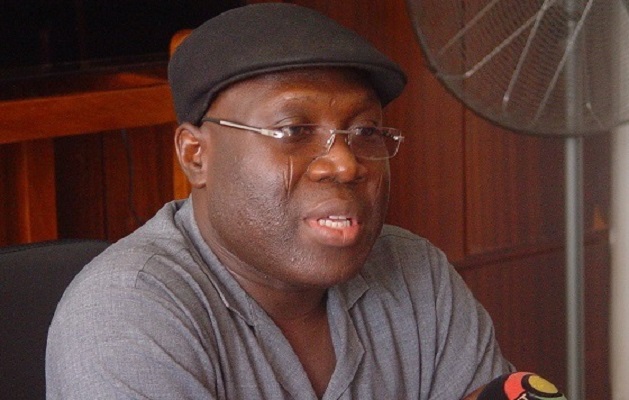If you want to get hypertension, go to parliament – Fuseini
Ghanaian members of Parliament are getting hypertension because of the financial pressure on them, the legislator for Tamale Central, Inusah Fuseini, has said.
“There is so much pressure and challenges, but we have to live with it as elected public servants,” he stated in a Joy News panel discussion on topical political issues in Ghana.
Such is the growing pressure that in 2008, President J.A Kufuor advised all MPs to go for a checkup at the National Cardiothoracic Centre.
Contrary to perceptions that the legislators were well paid and rich, the four-term MP said the job was not financially rewarding, compared to the sacrifices many make to enter the house, and even worse when they exit.
“People enter Parliament as insurance because they can’t find work. They go to borrow money and they get to win to get into Parliament, and they are perpetually saddled with debt.
“I know people who have sold their houses to contest elections and lost. Some contest, win and come to Parliament, but they can’t build houses. I know a sitting member of Parliament who has regretted coming to Parliament because he didn’t think that was it,” he explained.
Asked why politicians did not tell their constituents the truth but jostle to enter Parliament, he said it was because “they won’t believe us.”
“We are driving 4X4 and our salaries are published all over. You’re supposed to dress decently to Parliament. People look at the pictures and everybody is decently dressed. You’re served dinner and you develop bloated cheeks, so your constituents assume, there is an appreciation in your life. There are difficulties and challenges,” he said.
The financial plight of former MPs came under the spotlight in recent times as some MPs, including the Majority Leader, Osei Kyei-Mensah-Bonsu, make a case for a pension package for their former colleagues.
Mr Fuseini admitted that there were former MPs struggling to survive, after exiting the house, adding that he knew former colleagues who were constantly calling him for support.
After almost 14 years in Parliament, Mr Fuseini will not return to the house after the 2020 elections, he announced that he would return to private practice, as a lawyer.
Mr Fuseini entered Parliament in 2006 in a by-election, following the defection of Prof Wayo Seini, the then MP for Tamale Central to the New Patriotic Party.
After 16yrs in parliament, here are two reasons why I’m quitting – Inusah Fuseini
The National Organizer of the New Patriotic Party, Mr Sammy Awuku, who was on the panel, urged politicians to plan their exit.
“My advice to members of Parliament and politicians is that you are an employee of the people. So there must always be a constant reality check. You are only a leader when your constituents are following you. You are only a leader when these voters are following you. As a leader, the moment you turn and these people are not following you, then you are just taking a walk rather than leading them.
“Sometimes understanding their thinking helps. Don’t become arrogant when you become a member of Parliament. Politics and power shouldn’t change you.
“The people you meet on the way up are the very same people you meet on the way down. It should be a lesson for all of us. The thing is that as politicians, we don’t learn, “he said.
Ghanaian MPs have often complained about the daily demands on them from their constituents, asking for bursaries that are beyond their(MPs) pocket.
School fees, funeral contributions, church harvest contributions, wedding contributions, hospital bills for pregnant women are among the endless list of demands on MPs.
While political analysts believe that the demands are a payback for the promises the MPs make during campaigns, Mr Fuseini said they were a drain on the lawmakers, adding that the conditions of service for MPs were terrible.
While MPs nag about their conditions of service, an unsympathetic public also point to a lineup of incentives for the lawmakers, including four-year rent advance, vehicle loans and ex gratia that they are paid every four years, irrespective of whether they won or lose their seats.
Many also want the MPs to stop promising heaven, when they, in fact, they are not in absolute control of the state coffers and could only get projects for their communities through lobbying.



